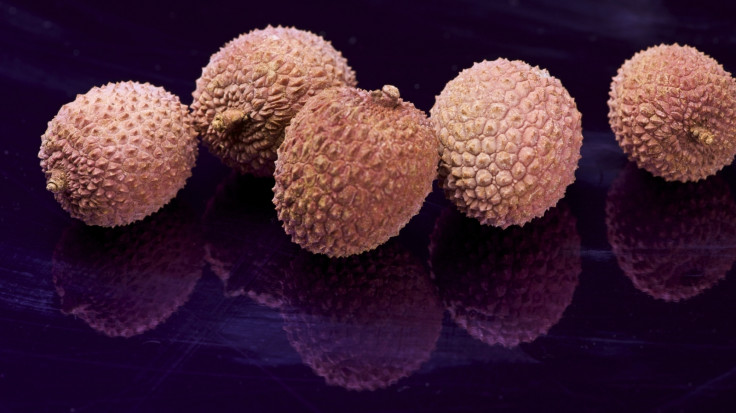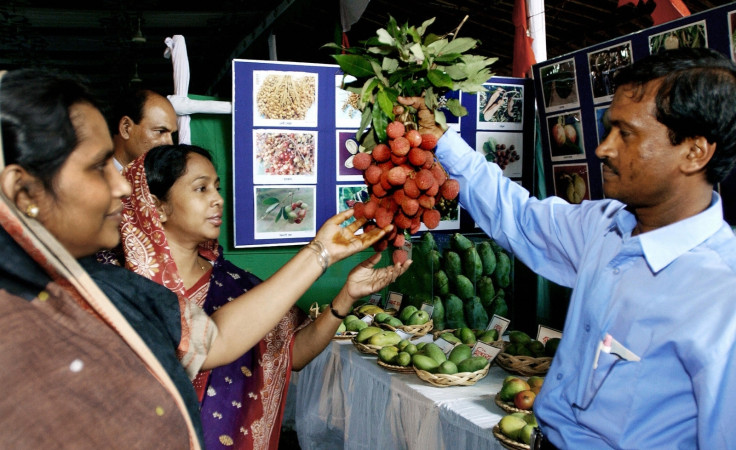Why are children dying every year near lychee orchards?
Something about lychees or the way they are grown is toxic, and undernourished children are paying the price.

Once a year, when the lychee season kicks in, hundreds children fall ill in the lychee-growing regions of Bangladesh, India, Vietnam and Thailand. The sickness manifests through fainting, convulsions, sweating and frothy discharge. There is often only two or three hours before the child is fully unconscious. For a very large number of them, the illness is fatal.
The illness is known as acute encephalitis syndrome, where the brain becomes damaged and inflamed. It was originally thought that a pathogen like the Japanese encephalitis virus was causing the recurrent outbreaks of the syndrome. But research found that viruses only caused a very small fraction of the cases of encephalitis in these regions. And if it was a virus, the timing of the outbreak around the lychee season didn't make sense.
Another suggestion was that two amino acids – the building blocks of proteins – present in young lychees could be causing the illness. Unripe lychees contain unusual amino acids that disrupt the metabolism of fatty acids. However, the exact mechanism of how this causes the illness isn't yet known.
But scientists have been exploring other theories in the search for a way to stop the lethal outbreaks. A study published today in the American Journal of Tropical Medicine and Hygiene has claimed that excessive use of pesticides in lychee orchards is behind the outbreaks. The study focuses on an outbreak in a rural community in Bangladesh in 2012 when 14 children were affected by the illness, 13 of whom died.
All but one of the children lived within 10 metres of a lychee orchard, and the other child was reported to have eaten a large number of lychees before falling ill. The highly toxic agrochemical endosulfan was being applied in these orchards, the authors noted. Endosulfan has been banned in more than 80 countries due to links with adverse health effects.
"The outbreak areas in Bangladesh are very close to Indian borders. There are some pesticides collected from India but they are banned in Bangladesh, so they are sold off label," study author M Saiful Islam of the International Center for Diarrhoeal Disease Research, Bangladesh, told IBTimes UK. "So it was hard for us to identify what types of pesticides were used there. Even the orchard owners didn't know the name of the pesticides."
Children were exposed to greater levels of toxins in the orchards than adults because they spent more time there, the authors said.
"In the morning, the children went to the lychee orchards and collected the cracked and dropped lychees from the ground and ate them. Children used their teeth to peel the skin before eating them," Islam said.

"Children are more susceptible to pesticide poisoning than adults in a contaminated environment because they eat, drink, and breathe more per unit of body weight. However, the adults in the affected community also mentioned that they had itching in their mouth after having lychees."
However, the study did not assess levels of pesticides on the lychee trees directly, and as there are no formal records of which pesticides were used and where, the findings cannot be conclusive. In addition, the children's symptoms didn't fit the typical signs of pesticide poisoning, said neurologist Peter Spencer of Oregon Health and Sciences University, who was not involved in the research.
"The clinical pattern here is inconsistent with our knowledge of the various types of pesticide poisoning, knowledge of which is drawn from global experience over many, many decades," said Spencer. "They also didn't show any evidence of pesticide residue on the lychee plants or on subjects who died."
It's thought that a lack of nutrition is key to why children turn to unripe lychees as a source of food.
"Children who are vulnerable are poorly nourished and hungry consume the lychees that are available to them. These are often unripe fruits, because the unripe fruit may be rejected by the trees and fall to the ground so they are easily accessible to kids. While adults are also susceptible, they appear to be much less so, for reasons that are not clear."
There is a lot more work to be done before the final word on the link between lychees and children's deaths is fully understood. Without this, finding a way to prevent the outbreaks will remain extremely difficult. Better collaboration between lychee farmers, the wider industry and academics could help to fill in the gaps in knowledge, said Spencer.
"Such understanding will benefit all."
© Copyright IBTimes 2025. All rights reserved.






















